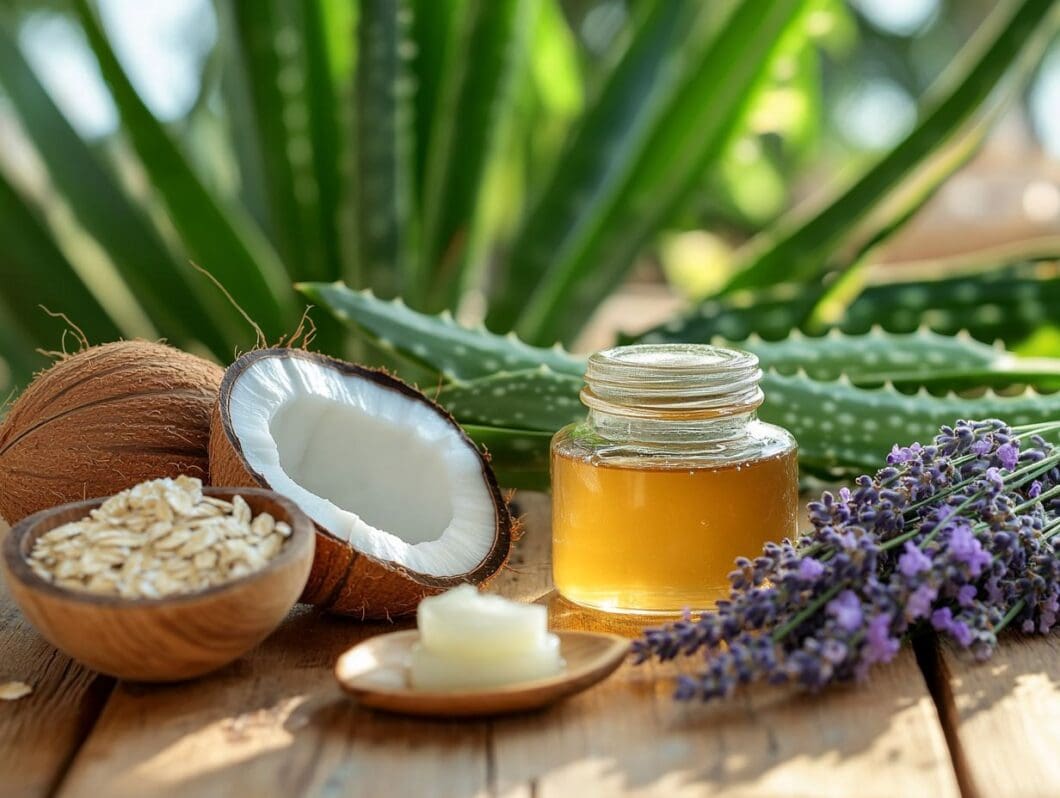In a world increasingly aware of health and environmental impacts, conventional beauty products are facing scrutiny.
Many of these items contain potentially harmful ingredients and contribute to environmental degradation.
Fortunately, natural alternatives present a healthier, eco-friendly choice for beauty enthusiasts.
This article explores the benefits of switching to natural products, highlights top alternatives for common beauty staples, and offers practical tips for seamlessly integrating these green options into your skincare routine.
Embrace beauty that nurtures both you and the planet!
Key Takeaways:
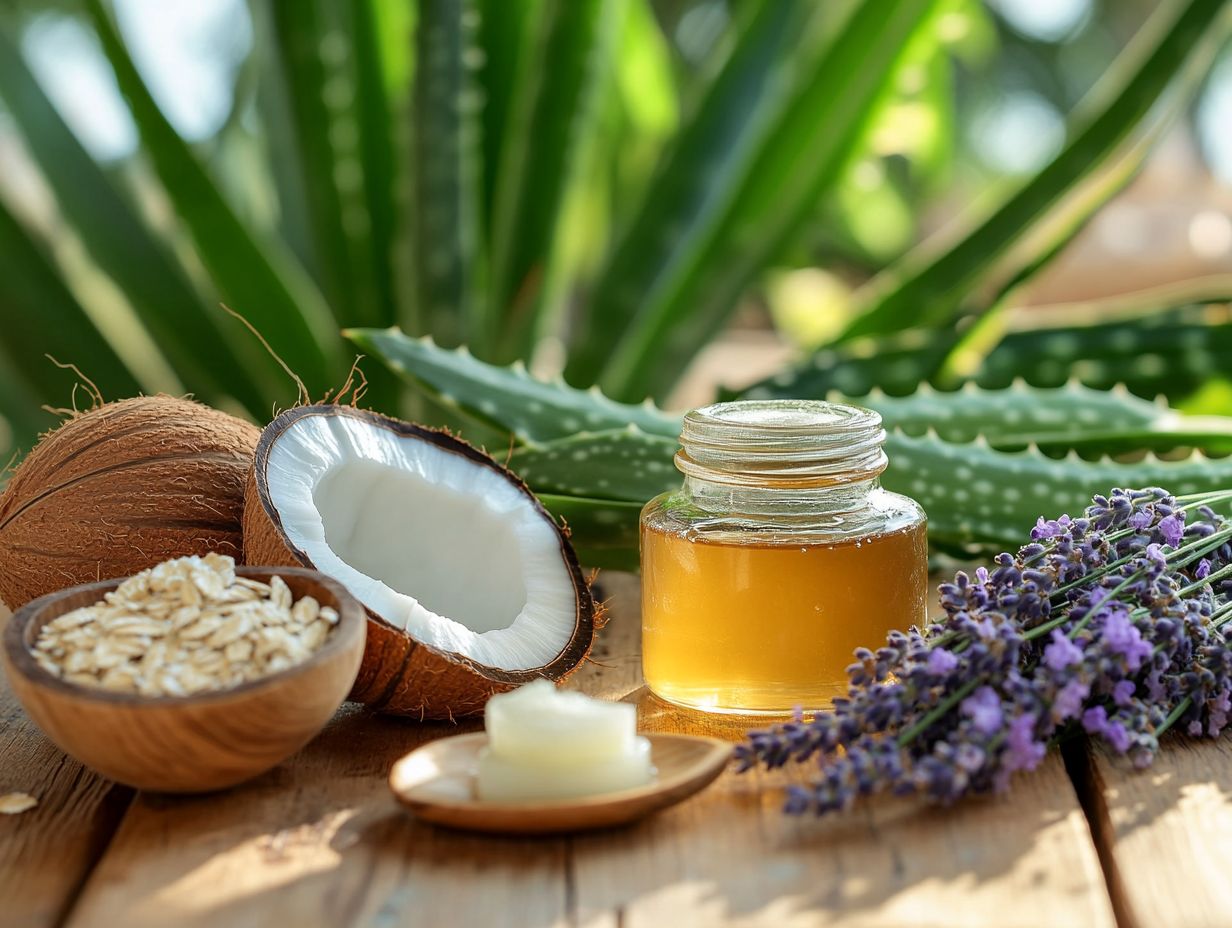
The Problem with Conventional Beauty Products
The conventional beauty products prevalent in the cosmetic industry today frequently contain a range of chemical ingredients that may pose significant health risks. This has led consumers to explore alternatives that are in line with the increasing trend towards innovation in cosmetics and clean beauty products.
As the cosmetic industry continues to expand, it is imperative to assess the environmental impact associated with these advanced beauty formulations, which may exacerbate skin care issues rather than provide effective solutions.
Potential Harmful Ingredients
Numerous conventional beauty products contain potentially harmful ingredients that may present significant health concerns, prompting consumers to seek natural alternatives in their pursuit of chemical-free skincare.
Ingredients such as parabens, sulfates, and synthetic fragrances are commonly found in these products and have been associated with skin irritation, hormonal imbalances, and even allergic reactions. As consumers become increasingly aware of the adverse effects of these chemicals, there is a noticeable shift towards options that prioritize skin health and overall well-being.
Natural ingredients, including organic oils, botanical extracts, and plant-based emulsifiers, not only provide essential nourishment but are also gentler on the skin. It is vital to recognize sustainable cosmetics within the beauty industry, as these products often demonstrate a commitment to eco-friendly practices, thereby promoting a healthier planet in tandem with personal care.
Environmental Impact
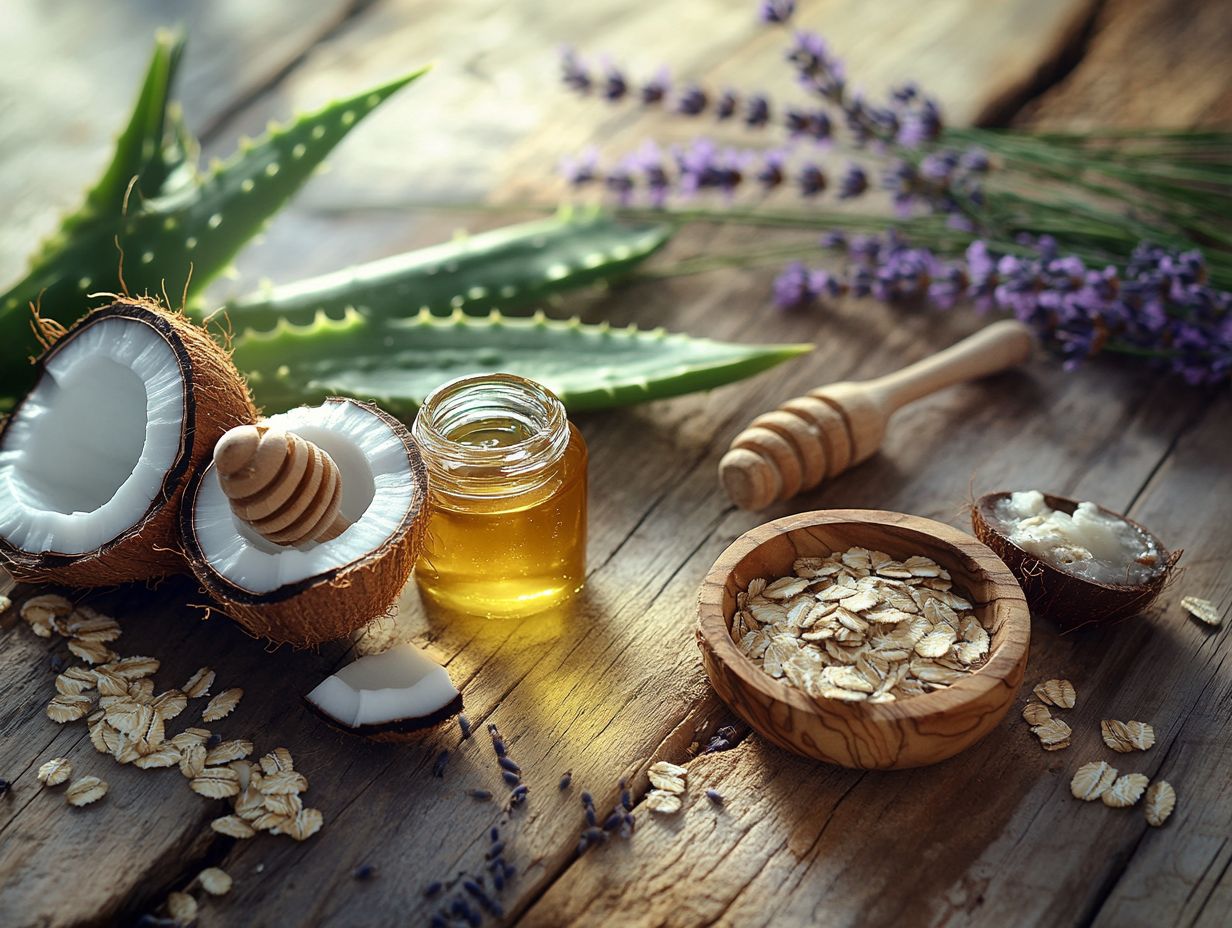
The environmental impact of conventional beauty products extends beyond the presence of harmful ingredients; many formulations also contribute to pollution and waste. This underscores the necessity for more sustainable sourcing and eco-friendly ingredients within the cosmetic industry.
This concern encompasses not only the chemicals that infiltrate ecosystems during production and disposal but also the excessive packaging that frequently culminates in landfills. These challenges highlight the pressing need for the industry to adopt more responsible practices, including the use of biodegradable materials and the minimization of unnecessary packaging.
Numerous brands are now striving to realign their focus towards sustainable initiatives, which include sourcing renewable resources and embracing circular economy principles. By doing so, they not only diminish their ecological footprint but also respond to the escalating consumer demand for ethical beauty products, thereby demonstrating that environmental responsibility and beauty can coexist harmoniously.
Benefits of Using Natural Alternatives
The advantages of incorporating natural alternatives into beauty routines are substantial, especially for individuals experiencing skin care issues. These products typically contain natural ingredients that promote healthier skin while minimizing the adverse effects commonly associated with conventional beauty items, such as chemical irritants.
By prioritizing clean beauty products with natural preservatives, consumers not only enhance their skin health but also contribute to sustainable cosmetics, which have a reduced environmental impact.
Healthier for Your Skin and Body
Natural skin care products are recognized for their capacity to enhance skin health, frequently utilizing ingredients with anti-inflammatory properties that are both gentle and effective in maintaining a balanced complexion.
These products often leverage the benefits of active plant extracts, such as chamomile, which alleviates irritation, and aloe vera, celebrated for its hydrating properties. In contrast to conventional products that may contain synthetic chemicals and fragrances, natural alternatives provide a more harmonious approach to skin care.
For example, tea tree oil effectively addresses oily or acne-prone skin by combating bacteria without causing harsh side effects. Meanwhile, shea butter offers intense moisture for individuals with dry skin types, demonstrating the availability of suitable options for various needs.
By adopting these natural solutions, individuals can care for their skin in a manner that respects its unique requirements, thereby promoting overall health and vitality.
More Sustainable and Eco-Friendly
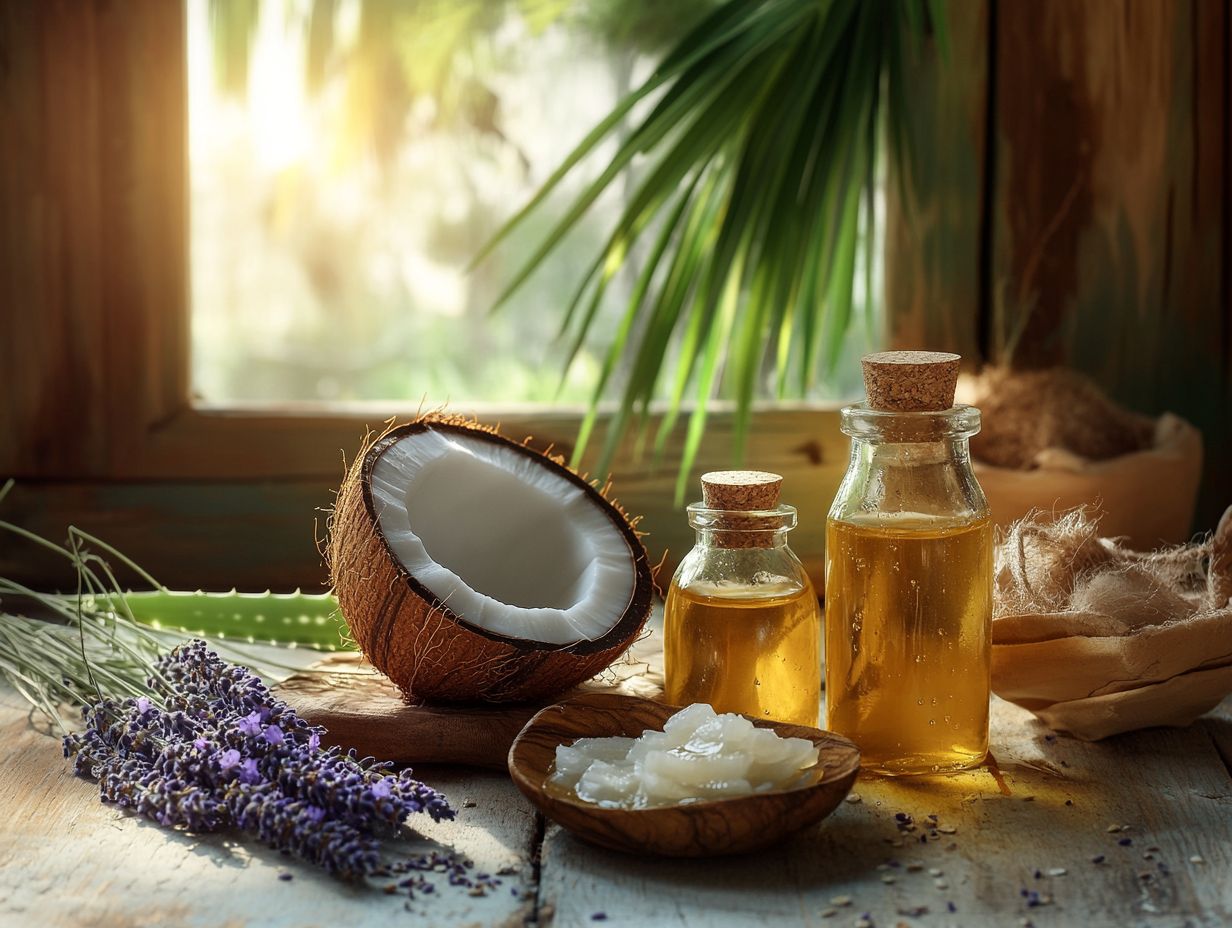
Choosing natural alternatives for beauty routines not only benefits individual skin health but also contributes to a more sustainable and eco-friendly cosmetic industry by minimizing waste through biodegradable materials and clean, natural preservatives.
This conscious shift reflects a growing awareness among consumers regarding the environmental impact of their choices. Numerous brands are emerging with innovative solutions, such as fully compostable packaging and ingredients sourced from renewable resources.
For example, companies like Lush and Ethique offer solid shampoo bars that effectively reduce plastic usage while also committing to ethical sourcing practices that benefit local communities.
By prioritizing sustainability, these initiatives illustrate that beauty can coexist harmoniously with nature, inspiring others in the industry to adopt eco-friendly practices that safeguard our planet for future generations.
Top Natural Alternatives for Common Beauty Products
As consumers increasingly recognize the potential risks associated with conventional beauty products, a wide array of natural alternatives has emerged. These alternatives feature effective natural ingredients that address common skin care concerns without the adverse effects commonly associated with chemical formulations.
This includes innovative retinol alternatives that offer a gentler approach for the skin.
Facial Cleansers
Natural facial cleansers, containing ingredients such as coconut oil and tea tree oil, offer gentle yet effective solutions for maintaining clean skin while avoiding the harsh chemicals often found in conventional products.
These formulations frequently incorporate other well-regarded natural ingredients, such as aloe vera, which is known for its soothing properties and ability to calm irritated skin, and honey, a natural humectant that aids in moisture retention. Jojoba oil, which closely resembles the skin’s own sebum, effectively dissolves impurities without disrupting the delicate balance of oils. Additionally, chamomile extract provides anti-inflammatory benefits, making it particularly suitable for sensitive skin types.
When used consistently, these cleansers not only remove dirt and makeup but also nourish and protect the skin, resulting in a refreshed and radiant complexion.
Moisturizers
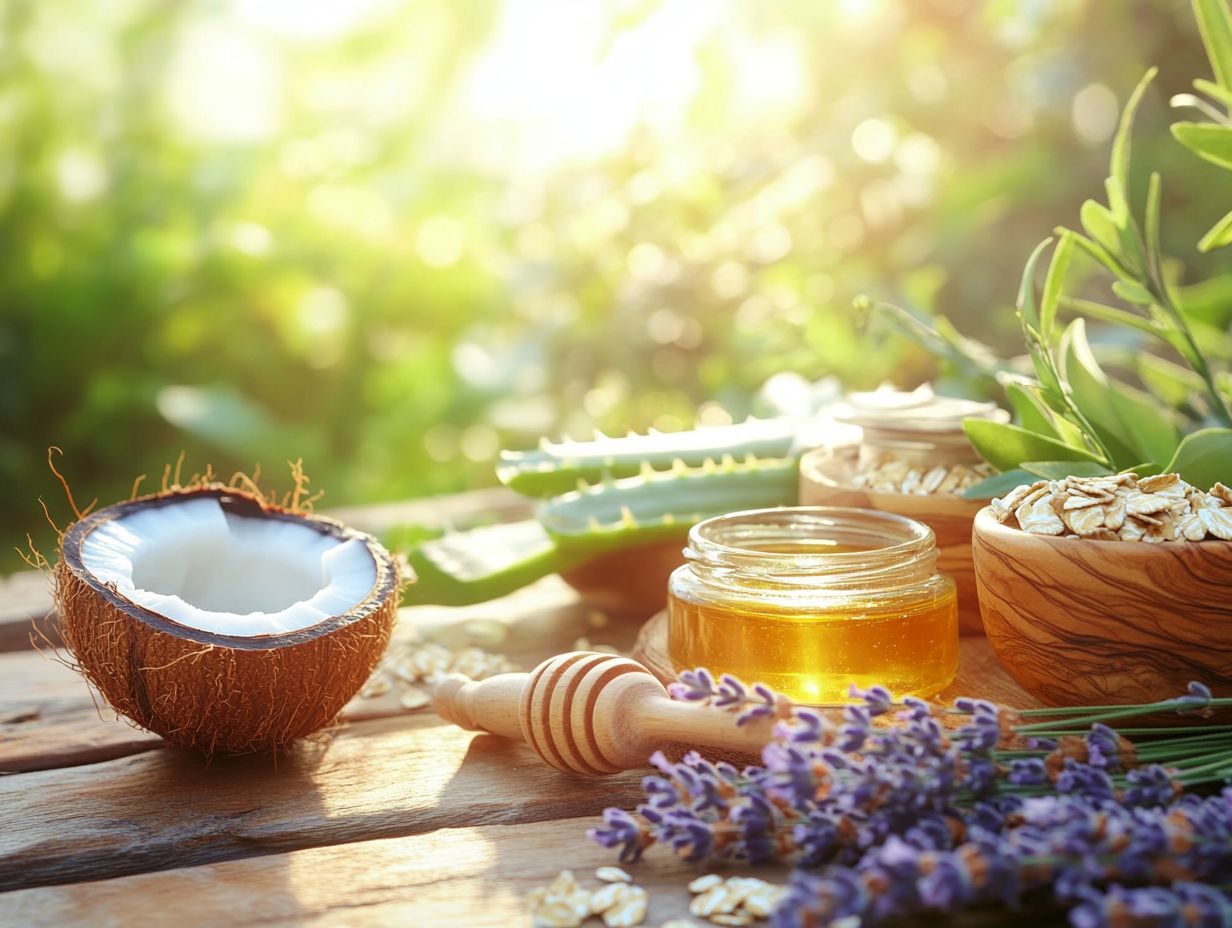
Natural moisturizers, enriched with ingredients such as shea butter and other natural emollients, effectively hydrate the skin and provide essential nutrients without the risks of harmful side effects commonly associated with synthetic alternatives. This makes them particularly suitable for the treatment of dry skin.
These formulations not only penetrate the deeper layers of the skin to lock in moisture but also promote elasticity and overall skin health. For example, oils like jojoba and almond deliver fatty acids that nourish and balance the skin, while aloe vera offers soothing properties to alleviate irritation.
By opting for products that are free from chemical additives, individuals can minimize the risk of potential allergies or irritations, thereby ensuring a safer and more effective skincare routine. The natural approach to skincare often embodies principles of sustainability and gentleness, resulting in enhanced hydration and a radiant, healthy complexion that endures over time.
Hair Care Products
Natural hair care products are formulated with eco-friendly ingredients and innovative formulations that promote the health of both hair and scalp while avoiding harmful chemicals typically present in conventional hair care lines.
These products frequently incorporate organic oils, such as argan and jojoba, which are abundant in vitamins and essential fatty acids, thereby providing deep nourishment. Additionally, ingredients like aloe vera and chamomile not only soothe the scalp but also enhance shine and manageability, catering to a variety of hair types.
The inclusion of herbal extracts such as rosemary and peppermint can invigorate the scalp and encourage healthier hair growth. By opting for these sustainable alternatives, individuals not only support the vitality of their hair but also contribute positively to environmental well-being, making informed choices that align with ecological values.
Makeup
The emergence of clean beauty products has facilitated the development of makeup options that incorporate natural ingredients, offering both aesthetic appeal and blemish-fighting benefits without compromising skin health. This transition towards more conscientious choices has resulted in a wide variety of formulations, from mineral foundations that nourish the skin to tinted moisturizers enriched with botanical extracts.
These products not only enhance the complexion but also significantly contribute to supporting skin resilience and vitality. Many brands are now implementing eco-friendly packaging and sustainable sourcing methods, ensuring that their practices align with consumers’ increasing awareness of environmental issues.
As more individuals adopt these environmentally responsible alternatives, it becomes evident that beauty can be both effective and sustainable, promoting a holistic approach to self-care.
How to Incorporate Natural Alternatives into Your Beauty Routine
Incorporating natural alternatives into one’s beauty routine can be an effective approach that enhances the overall skincare regimen. This practice encourages a transition toward consumer behavior that prioritizes clean beauty products and sustainable sourcing, all while promoting skin health.
Tips for Finding and Using Natural Products
Finding and utilizing natural products necessitates a discerning approach, emphasizing sustainable cosmetics that prioritize eco-friendly ingredients and align with individual skin care goals.
To embark on this journey, it is essential to start by thoroughly examining product labels. One should look beyond superficial marketing phrases to gain a comprehensive understanding of what each ingredient signifies for the skin.
It is also important to verify certifications such as organic or cruelty-free, ensuring that the brands under consideration uphold ethical practices. Engaging in thorough research is equally crucial; this involves exploring the brand’s history, mission, and user reviews.
Furthermore, familiarizing oneself with the benefits of common natural ingredients—such as the soothing properties of aloe vera or the nourishing characteristics of jojoba oil—enables individuals to make informed choices tailored specifically to their skincare needs.


